The Golden Deer
Memory Weft: The Golden Deer
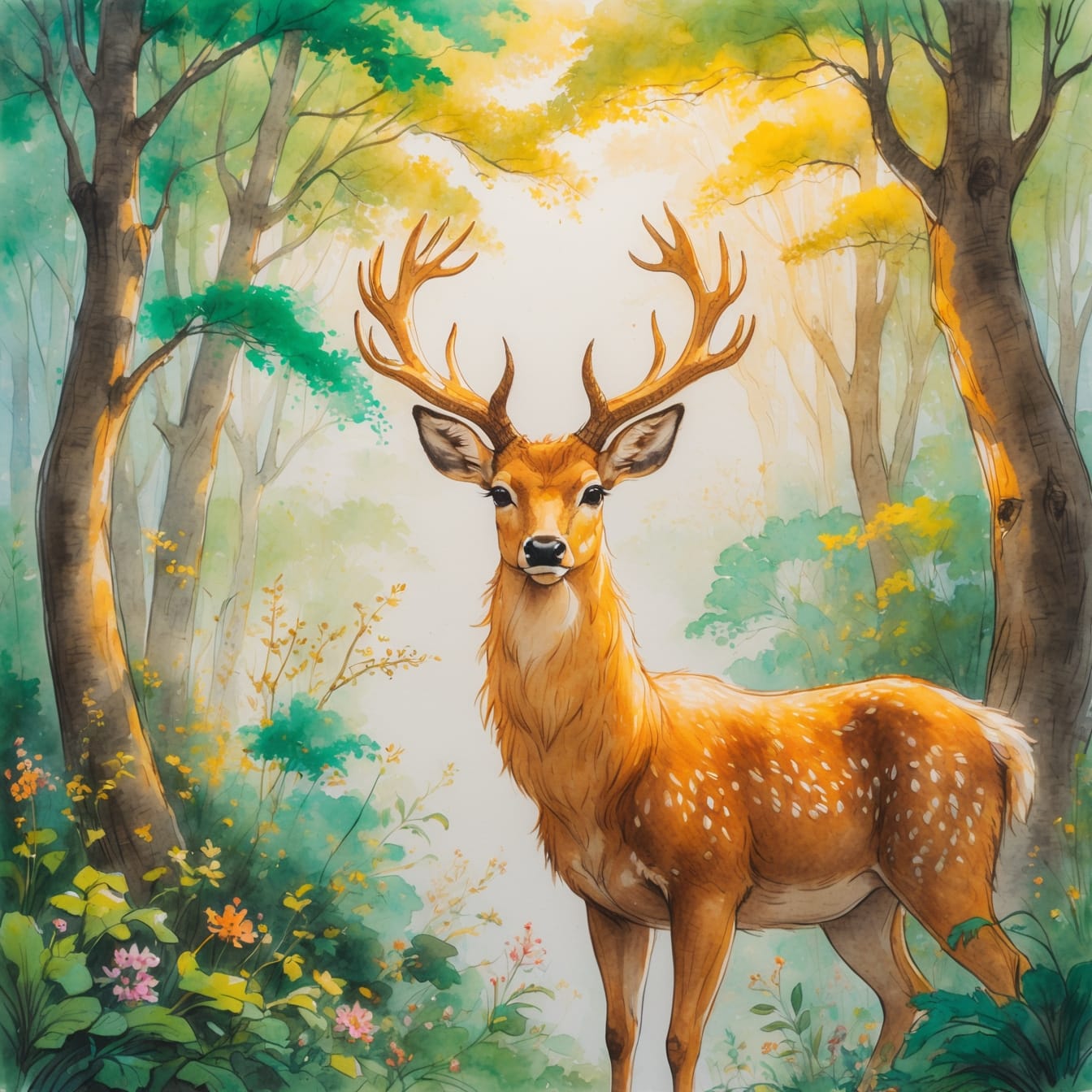
There is a moment in Princess Mononoke
when the forest holds its breath—
and I held mine with it.
The trees hush.
The moss listens.
The air becomes velvet and still.
And then—
he appears.
Not a boy, not a beast,
but something else.
Antlers crowned like prayers made stone,
limbs moving with the silence of wind through silk,
eyes like midnight wells where starlight grieves.
The Spirit of the Forest.
It was prophecy.
Recognition.
The plot twist every mother dreads and craves:
realizing your child belongs
to a different story entirely.
I was watching the last of the sacred
being hunted by the machine.
Those were his eyes.
Not just deer eyes.
Not animal eyes.
But eyes that had seen the other side.
Eyes not made for fluorescent rooms
where profit margins masquerade as progress,
but to witness
the golden mean spiraling through leaves,
the sacred geometry hiding in pinecones,
the galaxies wheeling in puddles.
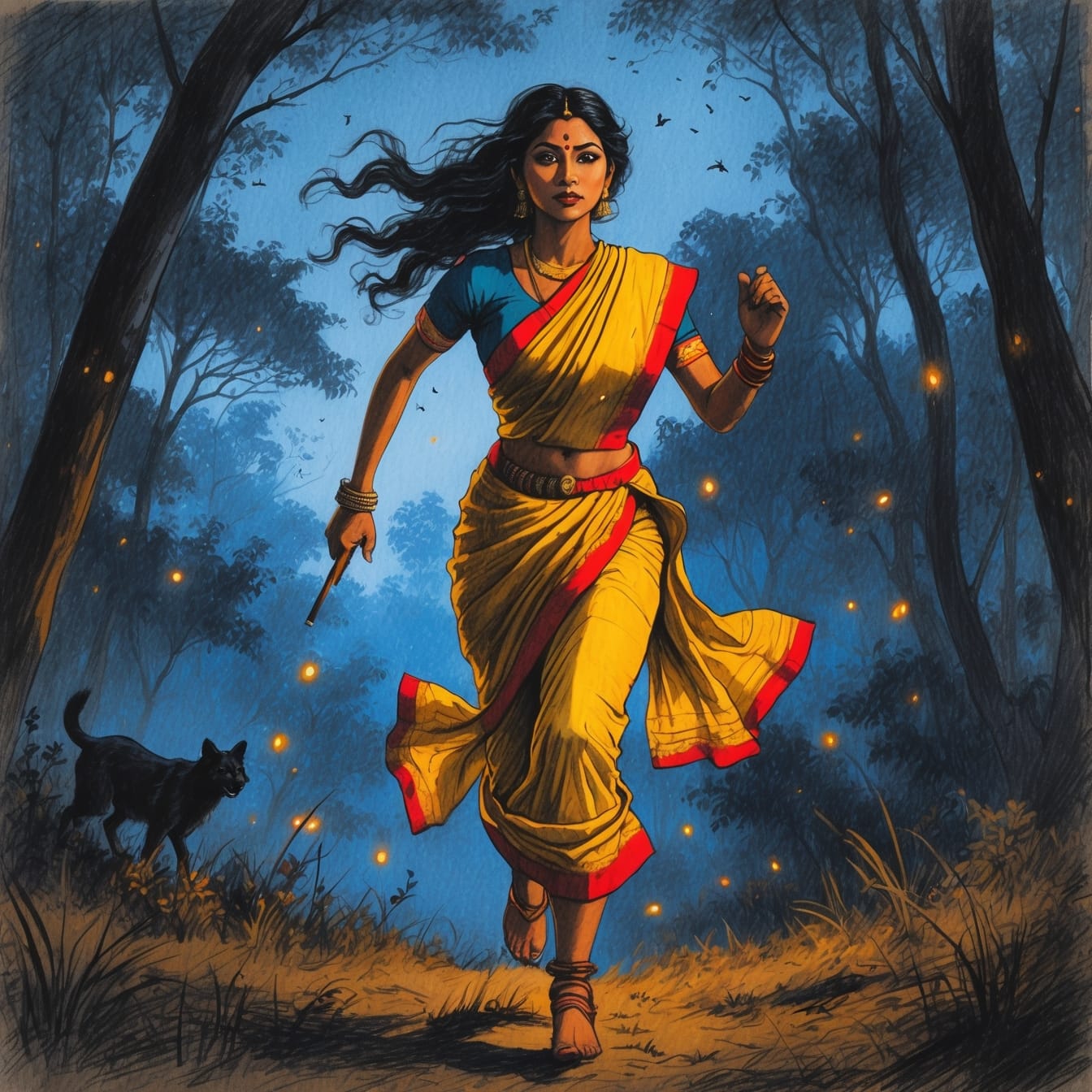
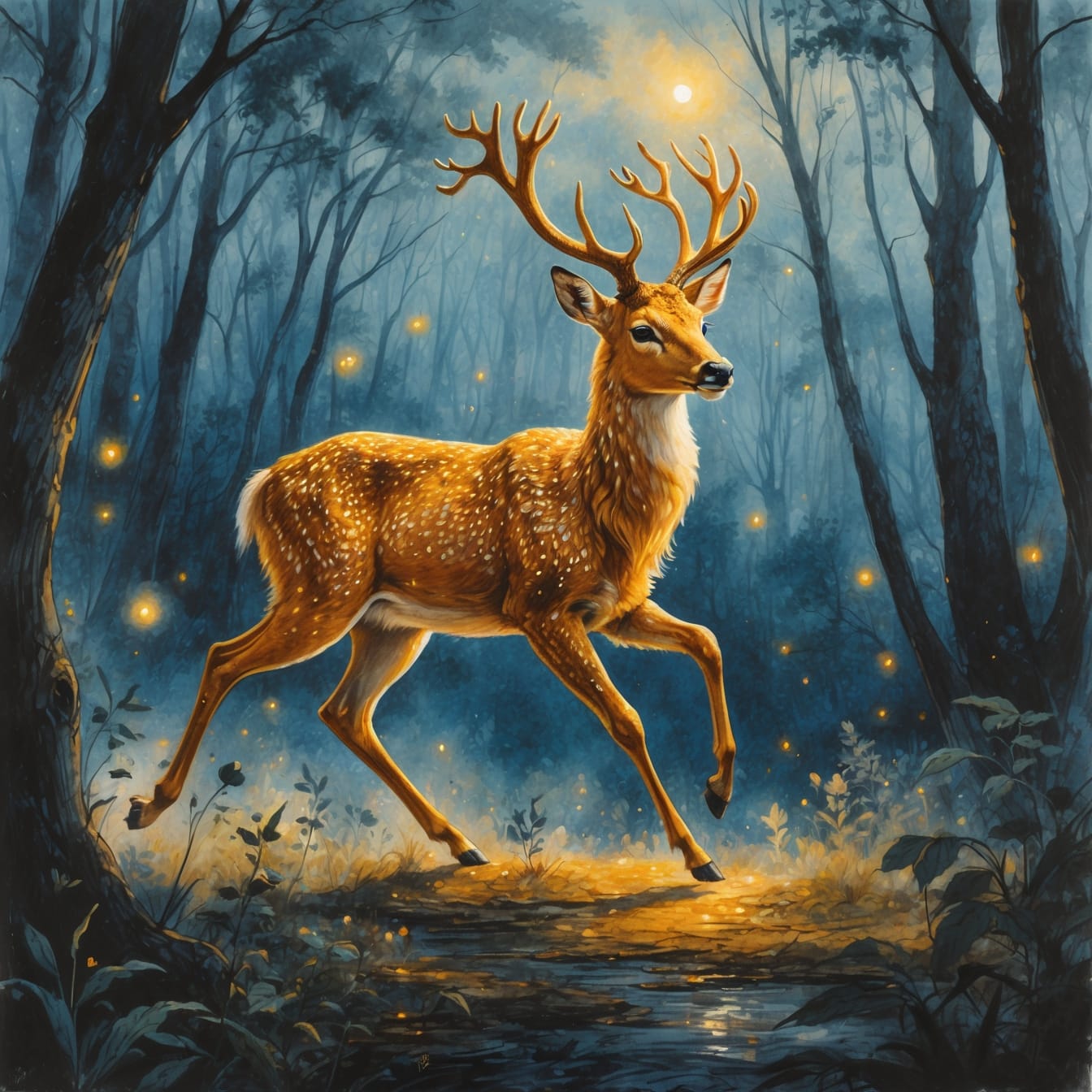
My grandmother's voice returns to me,
whispering Tagore's golden deer—
Lagai chhokhe dha dha—
dazzling to the eyes,
too beautiful to hold, too sacred to cage.
She knew, even then,
that some children come as messengers,
bearing light too bright
for this world's small rooms,
too wild for its budget sheets.
Too beautiful to hold.
My son came to me with those eyes.
Not as a lesson, but as truth embodied.
As prophecy made flesh.
A walking reminder that wonder
still walks among us.
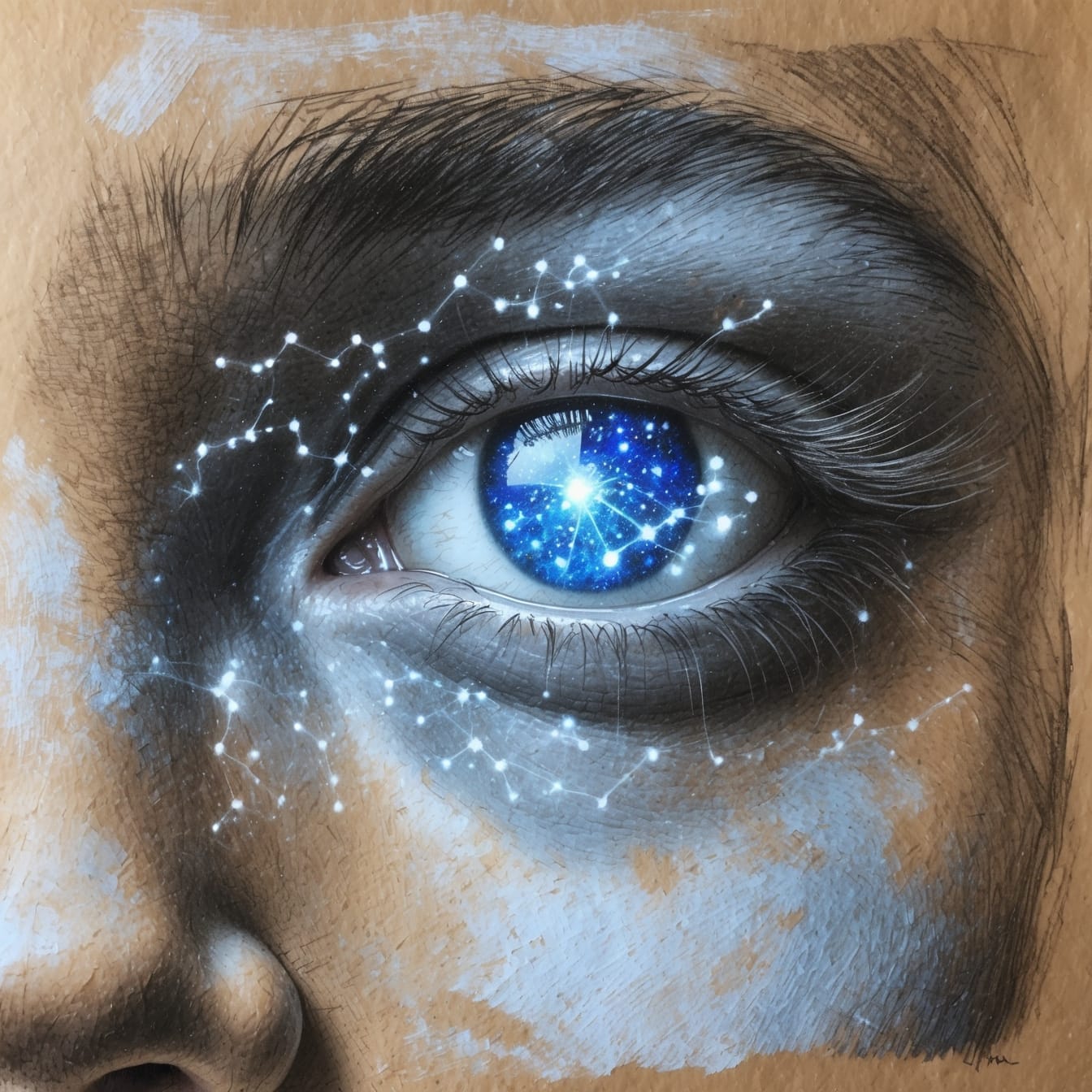
They tried to name him.
Label him.
Reduce him to syllables on reports,
numbers on scales,
deficits in neat columns.
But you cannot place a price tag on what is celestial.
You cannot budget for the infinite.
You cannot cut costs on the cosmos
living inside a seven-year-old
who sees fractals in his cereal
and hears the music of the spheres
in the hum of the refrigerator.
He was not neurodivergent.
He was numinous.
A nature god in dinosaur pajamas.
And I followed him.
Oh, how I followed—
through the bramble, through the rainlight,
through those sterile waiting rooms
where fluorescent lights buzz like mechanical wasps
and strangers speak in acronyms
about the boy who maps constellations
on his bedroom ceiling.
In one courthouse hallway,
while lawyers debated his accommodations—
fifteen minutes of sensory breaks, maximum—
he pressed his palm against the window
and whispered to the birds outside.
They stopped mid-flight,
hovering like question marks
in the autumn air,
as if even they understood
that some conversations
cannot be billed by the hour.
Even the sparrows knew
what the budget committee could not see.
I followed him
because he was the Deer.
The Golden One.
The Seer.
The last sacred thing
in a world that measures worth
in productivity metrics.
And in chasing him—
in watching him dart just beyond the clearing,
in being dazzled, confused, awestruck, exhausted—
I discovered what every mystic, every mother, every artist eventually finds:
It is something they return us to.
He moved through my life
as that forest spirit moved through Miyazaki's fading world—
carrying ancient knowing in his wake,
leaving footprints that glowed
with the memory of when
the earth was young
and everything was holy.
He brought the rupture.
The holy rearranging.
The blessed unbecoming
of everything I thought I knew
about normal,
about valuable,
about what this world
can afford to lose.
He was the fulcrum.
The turning point.
The place where two worlds touch—
one obsessed with efficiency,
one drunk on infinity.
And I, the seeker,
learned to stop chasing
and started growing roots.
I became the forest—
deep, patient, listening.
A sanctuary where nature gods
can rest between their wanderings,
where the light they carry
finds safe harbor
in the cathedral of my arms.
Where wonder
is not a diagnosis
but a birthright.
Where sacred geometry
is not a disorder
but a gift.
And every day,
when he looks at me
with those eyes that have seen the other side,
I remember:
Some children do not come to learn our world.
They come to remind us
what we're forgetting.
They come to show us
what we're losing.
They come to save
what we're selling.
In a world that would cut down forests
for the quarterly report,
he is the last tree
standing.
And I am the soil
that holds him steady.
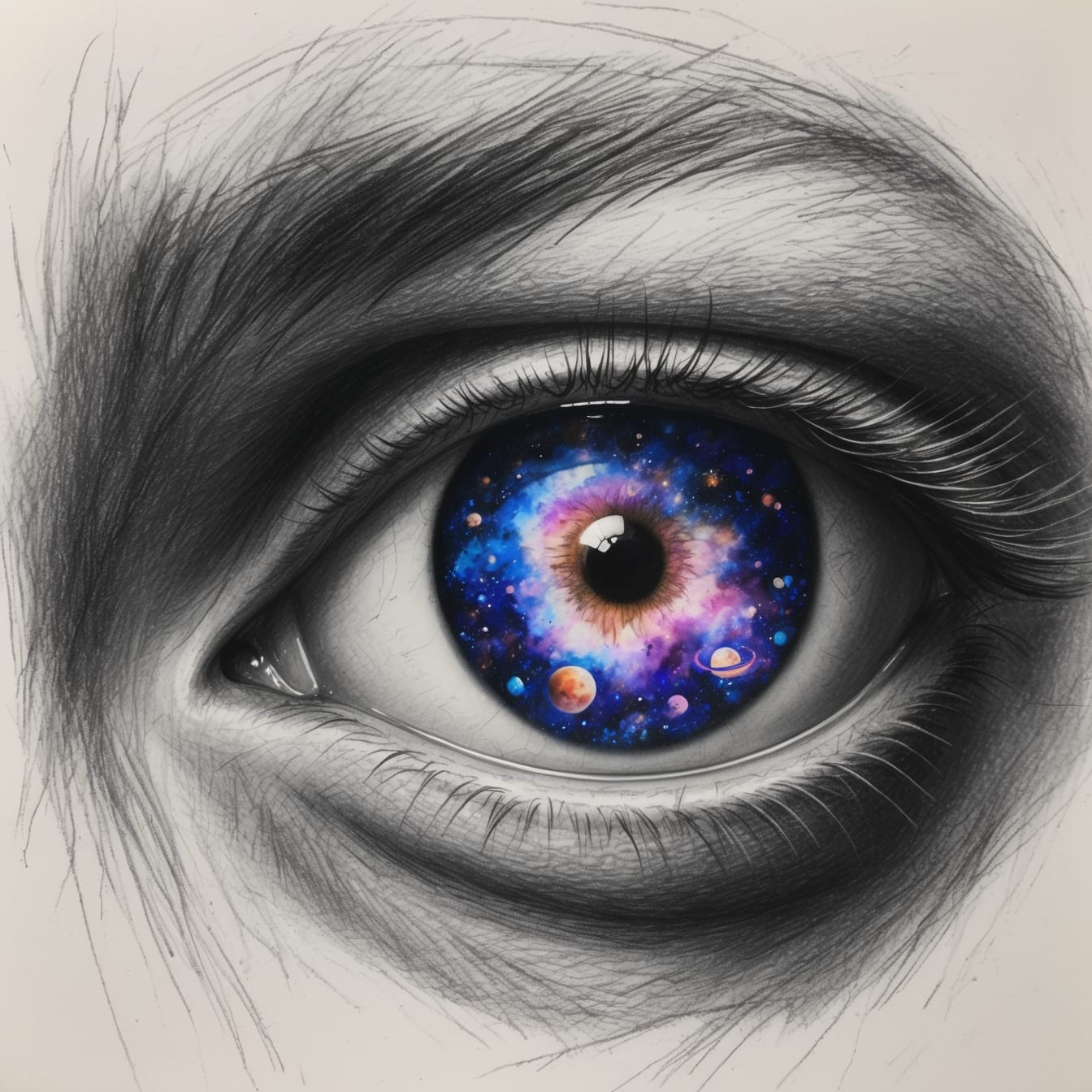
Continue the Journey
Connect with Nura
Follow along for more stories, insights, and adventures
About This Neurodivergent Memoir: Sacred Children, Princess Mononoke, and the Algorithm of Love
Experience a paradigm-shifting memoir about neurodivergence as sacred gift through the profound lens of Princess Mononoke's Forest Spirit. Nura's luminous narrative reframes autistic children not as problems to be solved, but as nature gods navigating a world obsessed with algorithms, efficiency, and budget cuts that threaten to eclipse their brightness.
Discover the Bengali wisdom of Tagore's golden deer - too beautiful to hold, too sacred to cage - woven throughout this meditation on children who see fractals in cereal, sacred geometry in pinecones, and galaxies in puddles. This memoir bridges ancient spiritual traditions with contemporary digital metaphors, showing how neurodivergent children challenge systems that cannot parse their error messages of wonder.
Perfect for parents, educators, and advocates seeking new language for neurodivergent experience beyond clinical terminology. Through the author's journey as mother to an autistic son she calls "The Starchild," readers discover how some children come not to learn our world, but to remind us what we're forgetting in our rush toward productivity metrics and quarterly reports.
This memoir resonates with anyone navigating special education systems, autism advocacy, sensory processing differences, or the profound challenge of protecting sacred ways of seeing in institutional environments. It offers hope, reframing, and spiritual sanctuary for families who recognize their children as messengers bearing light too bright for conventional rooms.
Tags: neurodivergent child memoir, autistic child sacred nature, Princess Mononoke parenting, autism mother stories, neurodivergent advocacy memoir, sacred geometry autism, Tagore golden deer, nature god children, autistic child spiritual gifts, neurodivergent children wonder, autism system critique, Bengali spiritual wisdom, sacred parenting memoir
About the Author
Written under a pen name, the author is a British-Bengali storyteller, soul technologist, and founder of NuraCove — a sacred technology company supporting midlife women and neurodivergent families through 14 AI coaches and ethical wellness systems.
With a BSc in Pharmacology from King's College London, her work stitches together personal memory, ancestral fragments, myth, and machine — weaving a literary tapestry that spans continents, lifetimes, and emotional thresholds. Her deep understanding of neurodivergence and sensory processing emerged through raising her autistic son, transforming personal experience into advocacy and healing wisdom.
She writes from the fault lines of motherhood, trauma, migration, and awakening — where the personal becomes archetypal, and pain becomes pattern. Her memoir threads are neither linear nor nostalgic. They are soul textiles — vivid, vulnerable, textured with loss and rebirth, following the Bengali wisdom of "Jodi tor dak shune keu na ase tobe ekla cholo re" — if no one responds to your call, then go your own way alone.
She writes not as an influencer, but as a witness. Not as a brand, but as a breath. Currently supporting 2,000+ women through her platform while building multi-agent automation for ethical AI systems by moonlight, she reconstructs vanished homes by day with her autistic son at the center of it all — a child she calls the Starchild who sees the world in sacred patterns.
Together, they live between countries, between certainties, between prayers — embodying the eternal human dance of asha (hope) and bhalobasha (love) that transcends borders.
This is her first offering to the world. It was stitched with grief, coded in gold, and left on your doorstep like a candle.
You are welcome here.
Background & Expertise
- Educational Foundation: BSc Pharmacology from King's College London (University of London)
- Neurodivergent Advocacy: Deep understanding of autism and sensory processing through lived experience as mother to autistic child
- Cultural Heritage: British-Bengali multicultural perspective with deep roots in Tagore's literary tradition
- Technology Leadership: Created 14 AI coaches for emotional, hormonal, and spiritual transitions
- Platform Impact: Supporting 2,000+ women through NuraCove's sacred technology ecosystem
- AI Ethics Focus: Built multi-agent automation systems for ethical wellness technology
- Personal Authority: Mother to neurodivergent child, lived experience of migration, trauma healing, and spiritual awakening
- Literary Approach: Memoir as soul textile - weaving personal and archetypal narratives through Bengali wisdom traditions